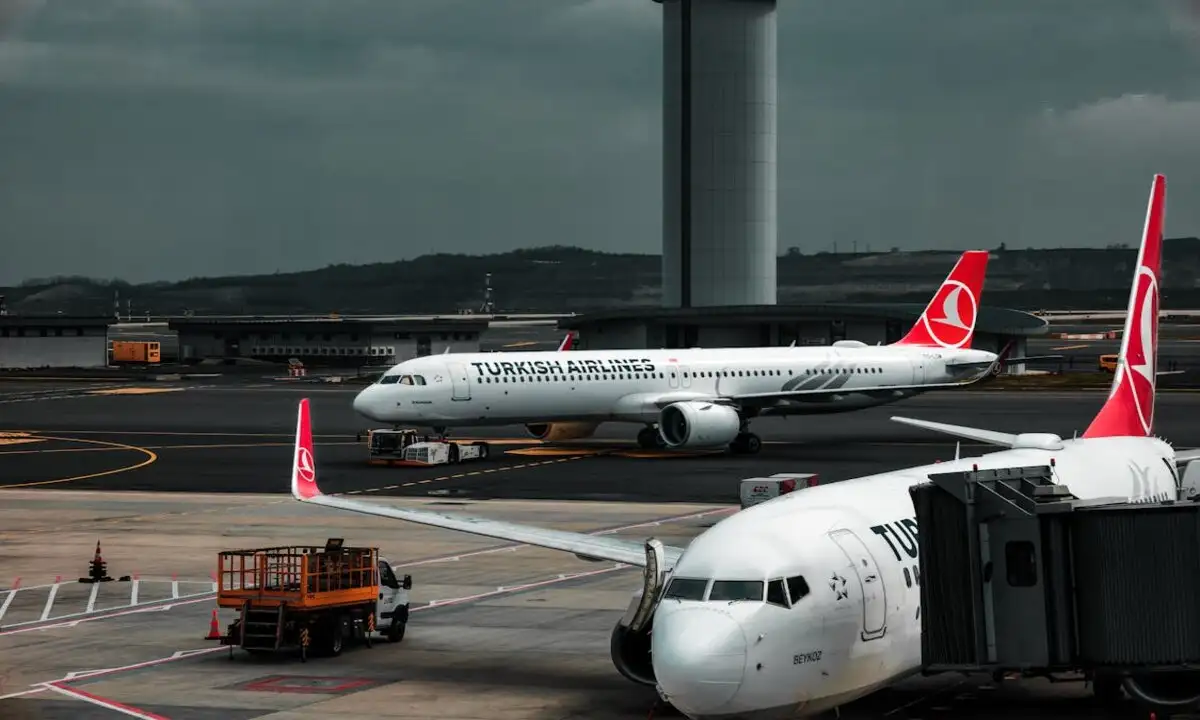Turkish Airlines, the national flag carrier of Turkey, is one of the leading airlines in the world, renowned for its service quality, extensive flight network, and commitment to excellence. Founded in 1933, the airline has grown significantly over the decades, becoming a key player in international aviation. Here’s an overview of Turkish Airlines, covering its history, services, and contributions to the aviation industry.
History and Growth
Turkish Airlines was established on May 20, 1933, initially operating with just a few aircraft. The airline began its operations by flying domestically within Turkey and gradually expanded its network to include international destinations. By the mid-20th century, Turkish Airlines had developed a robust infrastructure and gained a reputation for reliability and safety.
With the liberalization of global air travel policies in the 1980s and 1990s, Turkish Airlines seized the opportunity to expand its route network rapidly. The airline’s strategic location at the crossroads of Europe, Asia, and Africa allowed it to become a vital hub for connecting international travelers.
Fleet and Destinations
Today, Turkish Airlines boasts a modern fleet consisting of over 300 aircraft, including models from Boeing and Airbus. The airline serves more than 300 destinations in over 120 countries, making it one of the largest airlines in the world in terms of the number of destinations.
Its major hub is Istanbul Airport (IST), which opened in October 2018 and is one of the most advanced airports globally. Istanbul Airport serves as a crucial connecting point for passengers traveling between continents, allowing for convenient connections to various parts of Europe, Asia, Africa, and the Americas.
Service Excellence
Turkish Airlines is renowned for providing high-quality service to its passengers. The airline has earned numerous awards for its hospitality, including recognition from Skytrax, the prestigious airline rating organization. Turkish Airlines offers a range of services, including:
• Comfortable Cabins:
The airline provides various classes of service, including Economy, Business, and First Class, with spacious seating, in-flight entertainment, and meal options tailored to passengers' needs.
• Gourmet Cuisine:
Turkish Airlines is known for its excellent onboard meals, featuring traditional Turkish dishes that highlight the country’s rich culinary heritage. The airline collaborates with renowned chefs to create gourmet menus for its business-class passengers.
• Miles&Smiles Program:
The airline's frequent flyer program, Miles&Smiles, rewards loyal customers with miles for travel, which can be redeemed for free flights, upgrades, and other benefits.
• In-Flight Entertainment:
Turkish Airlines offers an extensive selection of movies, music, and television shows to keep passengers entertained during their flights.
Commitment to Sustainability
As part of its corporate responsibility, Turkish Airlines is committed to sustainable aviation practices. The airline has implemented several initiatives aimed at reducing its carbon footprint, including fuel-efficient aircraft, waste reduction programs, and the incorporation of sustainable aviation fuels (SAF).
Cultural Bridge
Turkish Airlines also serves as a cultural ambassador for Turkey, connecting people from various backgrounds and fostering understanding among different communities. The airline promotes Turkish culture through various initiatives, including sponsoring events, art exhibitions, and sports teams.
Conclusion
In conclusion, Turkish Airlines has established itself as a prominent player in the global aviation industry, known for its extensive network, exceptional service, and commitment to sustainability. With its dedication to providing a world-class travel experience, the airline continues to bridge cultures and connect people across continents. Whether traveling for business or leisure, passengers can expect a memorable journey with Turkish Airlines.















